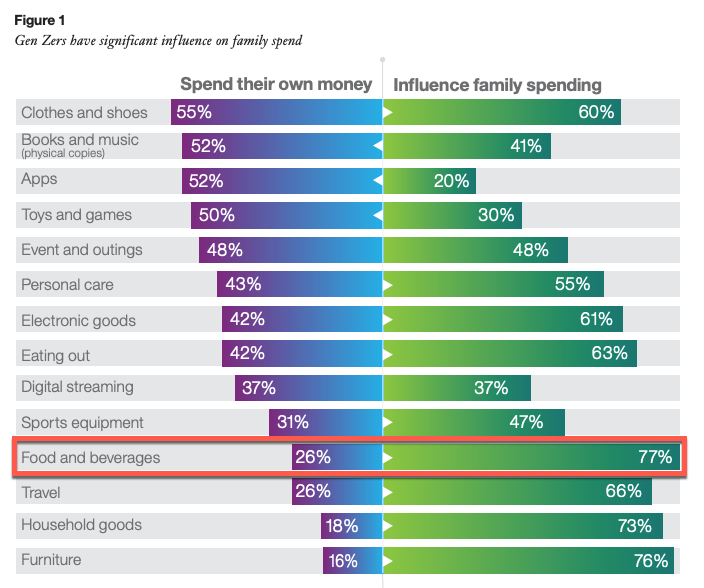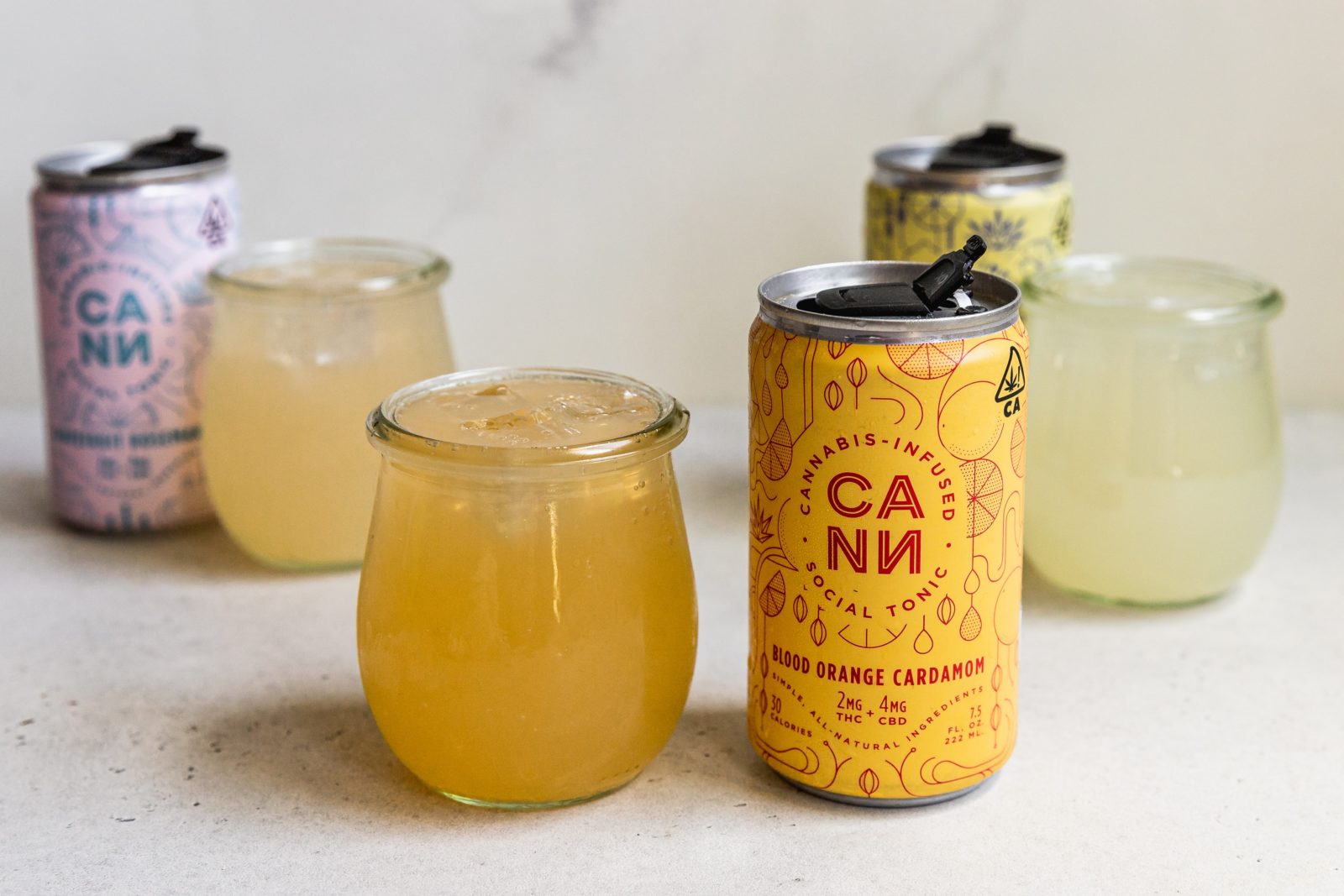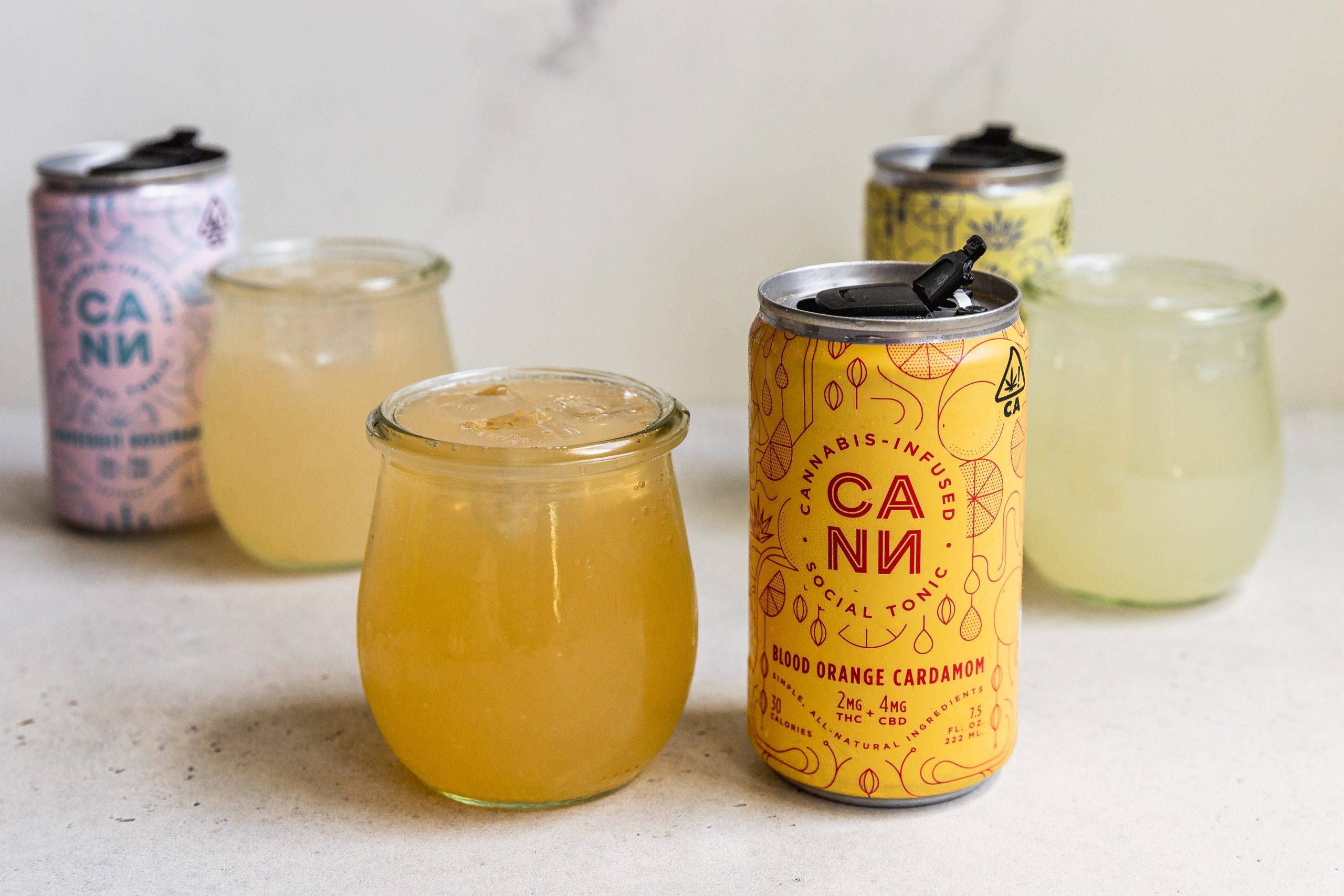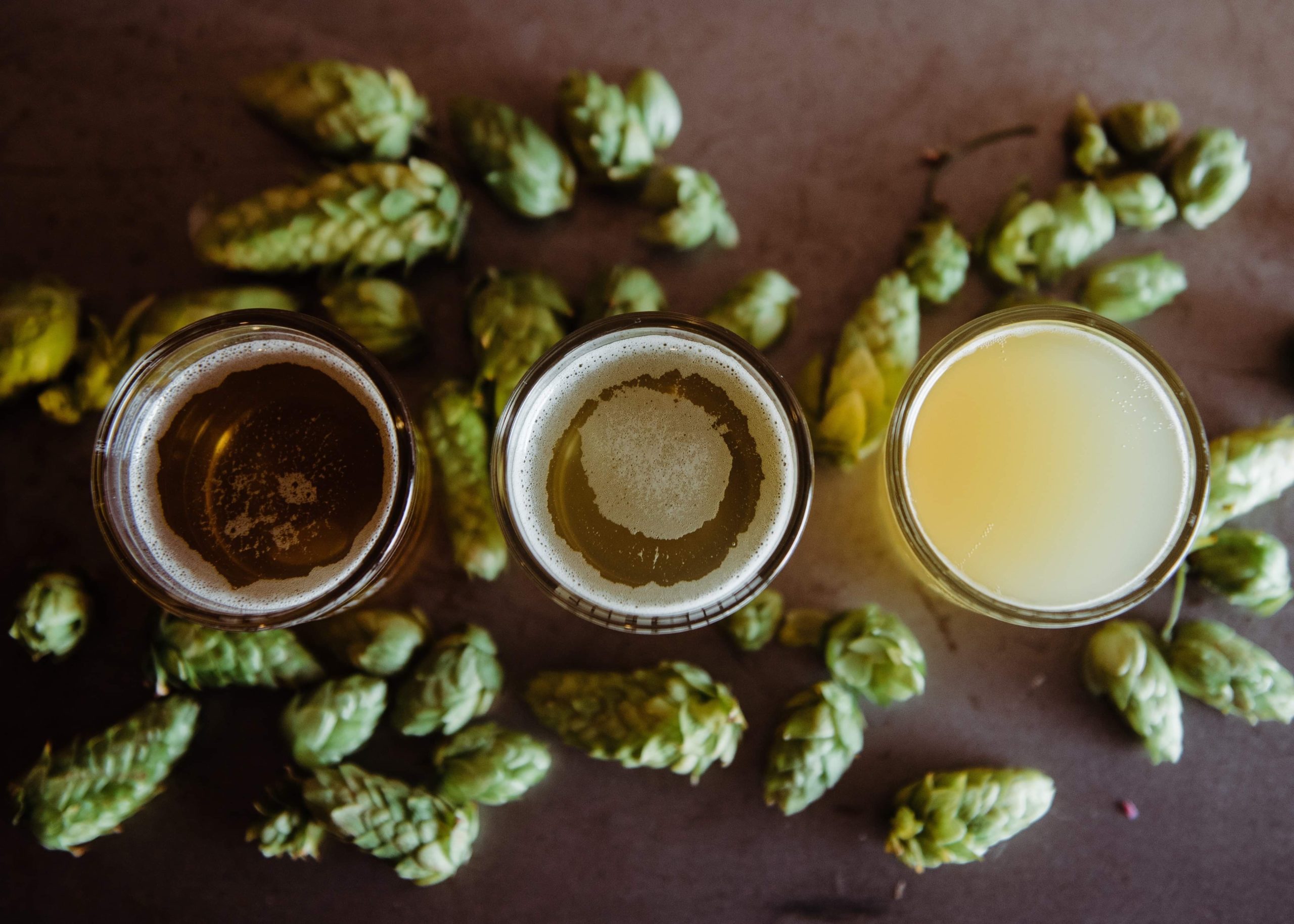Gen Z consumers are often overlooked or dismissed in retail research due to an incorrect perception of their youth and their lack of buying power. But Gen Z, usually defined as the generation of people born between 1997 and 2012, is far more influential than we might think. The oldest members of this generation, called Gen Zers, are 25 this year — adults with jobs, degrees, and growing financial and social influence. By the year 2030, Gen Zers will make up 30% of the American workforce.
But we won’t need to wait until 2030 to see the economic impacts of Gen Z’s purchasing habits. Gen Z already has a spending power of up to $323 billion. And with their outsized impacts on food and beverage, clothing, employment, language, media, and other trends, their influence expands far beyond their collective buying power. Gen Z is the first generation of true digital natives; these individuals generally can’t recall a time before the internet, social media, and smartphones. They navigate the complex social cues of social media like the uber-popular TikTok with ease, and by some accounts their influence on the buying habits of their friends and family is unmatched. This is especially true when it comes to food and beverage trends, where 77% of Gen Zers say they influence their family’s spending.

The bottom line is: beverage producers can’t wait until the remaining underage members of Gen Z turn 21 to plan for their growing social and economic influence. Now is the time to plan ahead and align marketing and production strategies to best suit this large and powerful segment of the population.
In This Article:
Characteristics of Gen Zers
Politically Progressive
Research shows that Gen Zers are politically progressive. They generally hold similar political views to millennials. Compared to other generations, they have more favorable opinions of the government, same-sex marriage, and racial diversity.
Diverse
48% of Gen Zers are racial or ethnic minorities. 25% of them are Hispanic. 35% of them personally know someone who uses gender neutral pronouns.
Environmentally Conscious
Gen Zers are deeply engaged in environmental activism. They are concerned about climate change, and they are engaged in actions to mitigate their waste and other environmental impacts. Millennials are still the generation most likely to report feeling very worried about climate change, but interestingly, Gen Zers are most likely to actually engage with environmental activism online.
Values-driven
Research on Gen Z consumers shows us that they are astonishingly values-driven. These young people see the products and services they purchase as an extension of their moral values– and these values are something they take very seriously. A report from McKinsey claimed that Gen Zers see “consumption as an extension of their identity.” If you want to capture the enormous buying power of Gen Z, you must remember that their purchasing habits are based in no small part on how well a brand aligns with their personal values.
Gen Z Financial Habits

It’s generally a good practice to avoid making assumptions about people based on their age. We bring up these characteristics of Gen Z because they provide invaluable insight into the type of cultural and financial changes that generation is going to bring about. We can’t overstate the scope of change that is on the way thanks to Gen Z. Members of this generation have a fundamentally different outlook from previous generations due to growing up with access to the internet and social media. They’re already bringing in dramatic social change, and we will only see that increase as more of Gen Z comes of age and enters the workforce.
This generation’s financial habits are deeply shaped by their characteristics and values. Let’s take a deeper look at how Gen Zers spend money.
Online Shopping
These digital natives prefer to shop online, often even shopping directly from a smartphone. Brands without an online presence feel almost suspicious to them — if it’s not online, does it even exist?
In part due to their preference for shopping online, they also rely heavily on other online sources to provide information. They are voracious readers of reviews. If they’re visiting a brewery or winery, you can count on them checking the website, Yelp, and Google Business Profile before leaving. With almost unlimited information at their fingertips, they certainly make use of it. They find this kind of informal research natural and easy.
We know that e-commerce and related advertising isn’t always an option for beverage retailers, due to differences in local regulations. But if it is an option for your business, take advantage of this easy way to connect with Gen Zers and broaden your customer age demographic. Even if e-commerce and/or advertising are not possible for you, investing in a modern-looking website and updating your Google Business Profile is a must. As we said, this generation is deeply suspicious of businesses without an online presence. You can find more information on cost-effective ways to improve your online presence in this article.
Branding, Brand Identity, & Social Media
The rise of social media presents a unique challenge for beverage producers looking to connect with a Gen Z audience. Because Gen Zers are so values-driven in their purchasing habits, it’s critical that businesses understand how their values align with this generation and that they find a way to effectively communicate these values. Performativity (simply projecting an image of progressive values without actually committing to a cause) is almost worse than not sharing brand values at all. Remember, this is the digital native generation. They have zero trouble sniffing out false or disingenuous branding.
There’s also the issue of social media in general. It has democratized communication to the point where it can be difficult for casual users to figure out the difference between a brand’s genuine values and critical social media chatter. More than ever, we put our trust in people we feel familiar with over institutions and brands themselves. That’s why influencers have become such an effective marketing technique– what separates them from a marketing coordinator is the cultivated trust and the perception of a relationship between themselves and members of their audience.
If you have doubts about how influential this perceptive ability might be, consider this: According to a report from the National Retail Foundation, 77% of Gen Zers report that they’ve shaped their family’s spending in the food and beverage consumer category. Even though many Gen Zers are still underage or young adults without much capital to spend, they’re hugely influential in how other generations spend their money. When this generation comes into its own, it will be a powerhouse of critical consumer spending. Now is the time to prepare by using smart, genuine branding.
Quality, Value, & Practicality
Young people may have a reputation for being shallow or flighty, but it’s inaccurate to characterize Gen Z in these terms. Gen Zers are actually loyal to the brands they trust. The number one thing they look for when deciding whether a brand is worthy of their money? Quality. The NRF report describes Gen Zers as “both practical and skeptical.” They aren’t ready to financially commit to a brand unless they believe that brand provides excellent value for their money. They may hesitate to go all-in on a subscription-based product or service without a trial period. Another way we see this skepticism express itself is in Gen Zers’ eagerness to research brands online and look through reviews before purchasing.
With their desire to see authenticity in marketing and social media, there’s really no shortcut to attracting customers in this sense. Social media and widespread internet access via smartphones have the power to bring huge attention to corporate missteps. Of course, the reverse is also true. Sell great products or services and you’ll gain serious brand loyalty — at least from Gen Z, which is particularly interested in tracking down good deals.
Sustainable Businesses
We’ve spoken already about how Gen Zers prefer to purchase from brands whose values reflect their own. This is applicable across a whole spectrum of values — social, political, cultural, and so on. Young people want to spend money with progressive brands that give back to their community and advocate for causes they believe in. The interest in sustainability and preventing climate change is particularly widespread among this generation. While other causes may be divided along more traditional ideological lines, as a whole, Gen Z is very concerned about climate change. Gen Zers want to take personal action to mitigate their carbon footprint, and they prefer to choose sustainable brands when possible.
This is a particular sticking point within the beverage production industry, as selling beverages produces a very visible form of waste to the consumer (the bottle or can that drinks are packaged in). Consider switching to sustainable packaging whenever possible. This could mean beer or wine packaging made of recycled materials, or simply reducing the amount of packaging waste with each brick-and-mortar or e-commerce sale. But don’t stop there! Focusing on sustainability is a huge opportunity for businesses to appeal to younger consumers. Consider how you can eliminate fossil fuels from your distribution, or switch to a lower-waste production method.
Alcohol Trends Among Gen Z

While we have only limited information about beverage trends from Gen Z at the moment due to the age group represented here, we do have some predictions based on our research. We expect these categories to grow as more Gen Zers reach the legal drinking age.
- Non-alcoholic beverages such as NA beer, mocktails, etc. Gen Zers are among the younger people experimenting with a sober, “sober-curious,” or Cali-sober lifestyle. They’re concerned about the health impacts of alcohol and want to avoid overdoing it. As the stigma around being a non-drinker continues to fade, bars and breweries are making it easier for non-drinkers to socialize in these settings with menu options such as mocktails and kombucha.
- Drinks with a lower percentage of ABV may be more appealing to Gen Zers. 3 in 10 young people say they’re actively limiting their alcohol consumption. Gen Zers are gravitating toward drinks with less alcohol than beer and wine, instead opting for hard seltzers and mixed drinks.
- Healthy or clean beverage options. This may include low-alcohol or alcohol-free options, as we’ve already discussed. But this category includes other prospective trends as well. Kombucha has a healthy image because it contains tons of good bacteria, which can benefit gut health. Consumers may also seek out organic or low-calorie options rather than beer or wine, which are both typically high in calories or simply less transparent about their nutritional content.
- Cannabis-infused beverages. We’ve written before about the growing popularity of cannabis-infused beverages. These alcohol-free drinks provide a buzz from THC, the psychoactive component of marijuana. There are many reasons these drinks are growing in popularity, but one key reason is a generational shift in perspectives on marijuana use. 85% of people ages 18-35 think that recreational marijuana should be legalized nationwide. In states where recreational marijuana use is legal, 61% of Gen Zers say they use it.
There are already at least 35 million Gen Zers of legal drinking age in the United States. By the year 2031, that number will be at least 85 million. Don’t wait to update your marketing strategy with these young people in mind. Already their social media savvy, critical eye toward brands, and desire for sustainable products are shaping the beverage landscape. An authentic social media presence, positive online reviews, and an eye toward these growing trends in the beverage space will ensure your business’s success for generations to come.



